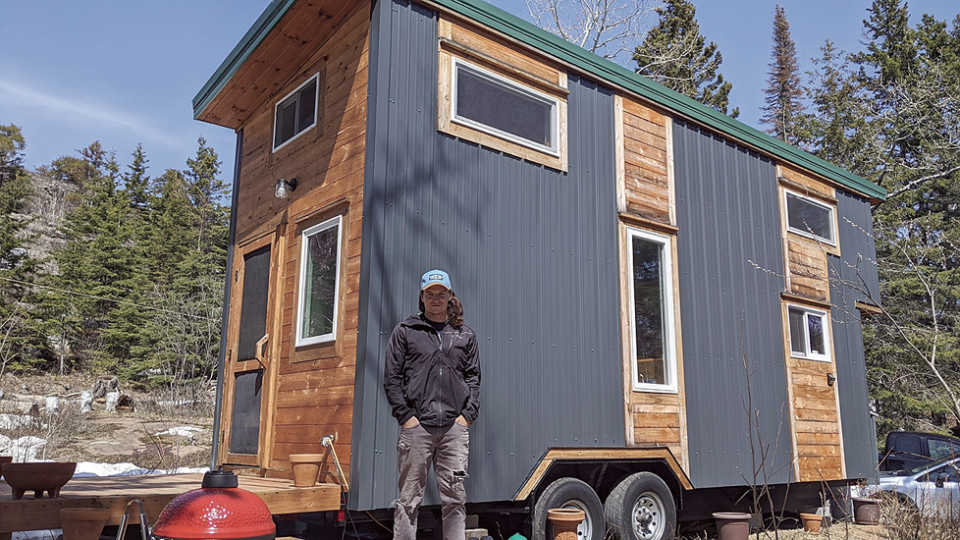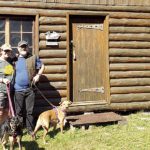Whether by personal choice or driven by socioeconomic factors, the North Shore of Minnesota is home to a wide variety of unconventional housing situations.
For some individuals who reside along the North Shore, living a simplified tiny home lifestyle or renting a converted basement of a community member’s home is a dream come true. However, for many others, it is the only option that exists. In recent years, the housing market in northeastern Minnesota, particularly Cook County, has experienced monumental growth. While housing in Cook County has always been a struggle, the flexibility in remote work following the pandemic, paired with a booming short-term rental industry, has transformed the long-term rental character of the county, and many young individuals have found creative ways to adapt.
“Cook County has always struggled with rentals my entire life. So, there’s nothing that’s really changed there,” Virginia Palmer, the owner of Coldwell Banker, a family real estate business in Grand Marais, said. “People have always been adapting.”
Adjusting to changes in the long-term rental market comes in many forms in the remote northland. From Duluth to the Canadian border, young individuals have settled into living in apartments above garages, converted basements, tiny homes, yurts, co-living with strangers from international countries, and living in a canvas tent with only a bed and wood stove.
The freedom to travel and save money is why Joey Pederson, a Cook County resident, chose to live the tiny home lifestyle. Five years ago, he built a 20-by-8-foot tiny home on a trailer using recycled materials from construction sites. He then purchased 10 acres of land near Hovland and equipped the home with a wood-burning stove, a propane stove, and off-grid capabilities.
Pederson shared that there have been numerous benefits to living the simplified tiny home lifestyle throughout the past five years. One of his biggest joys with a smaller footprint is “cleaning only takes five minutes.” With less time spent cleaning, Pederson and his partner, Twyla, who recently moved in, have more time to enjoy the outdoors. “My favorite thing is that it makes you naturally be outside more,” he said.
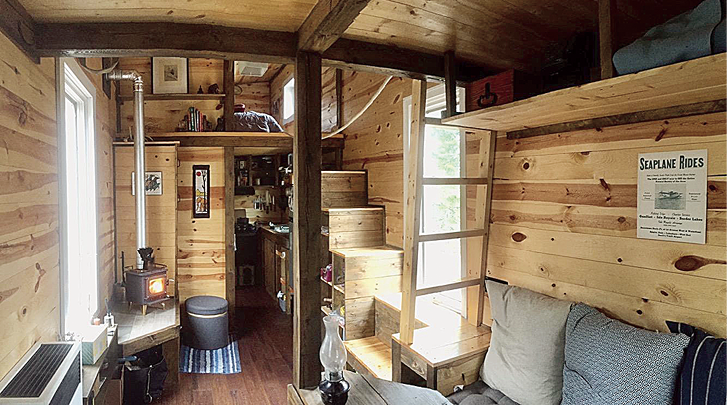
In addition to minimal interior house chores, outdoor chores such as chopping firewood require less work. It can often feel like a full-time job for homeowners who cut and split their firewood. Fortunately, Pederson said, that’s not the case when you live in a tiny home. He cheerfully explained one birch tree was all he needed to heat his 400-square-foot home throughout the winter.
Although Pederson said he dreams of building a house in the foreseeable future, for right now, the simplified tiny home lifestyle suits him.
From the real estate perspective, Palmer says she has noticed a trend in individuals finding more alternative housing styles in Cook County, including an uptick in tiny homes and yurts. As a result, the trend indicates that more renters are willing to sacrifice conveniences such as running water and sewer to secure a place to live. “Without the YMCA, I don’t think some of those options would be as viable,” Palmer added.
For Brittany Kubes, a membership at the Duluth YMCA was incredibly beneficial while she lived in a small canvas tent north of Duluth. She would frequent the YMCA to bathe and use the amenities similar to many remote renters in Cook County.
While housing options are more abundant in the Duluth area, Kubes said she chose to live in a canvas tent on a friend’s property for 10 months to save money to pay off her law school student loans.
Kubes says living in a small canvas tent that fits a twin bed and wood stove may not be for everybody. “It really takes a lot of resilience. Everything is just a little bit harder.” However, she adds that while her unique living situation was challenging at times, she has fond memories of living in the canvas tent. “Some of it can be beautiful too because it feels like there’s more of a connection to your surroundings and day-to-day life.”
Kubes left her cozy tent living situation six years ago to accept a job farther up the North Shore in Grand Marais. Her decision to live in a non-typical housing situation was no longer a choice but became a necessity. After labored efforts to find housing, she finally landed a small rental near Hovland without running water. Throughout the past six years, she has experienced various living situations within the community, including renting a house in the off-season months, before it transitioned to a short-term rental.
Non-typical living situations are a delicate balance between comfortability and functional living. For Alex Blust of Cook County, her openness and comfortability to live in a converted basement of a three-bedroom home led to a “lovely friendship.”
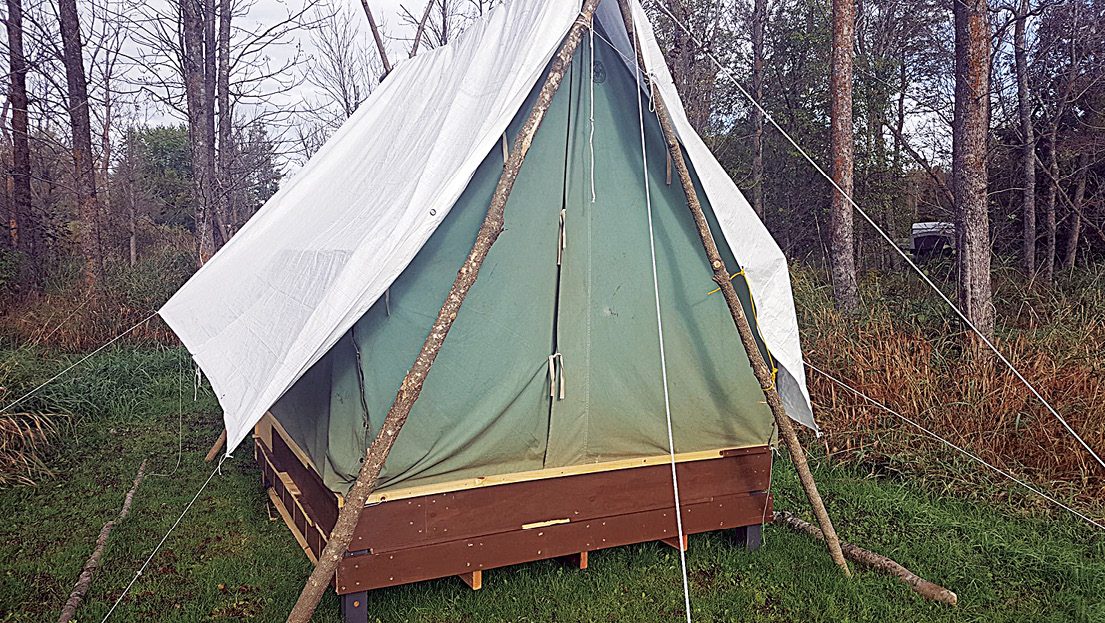
Blust, an intern at the North House Folk School in 2021, decided she wanted to stay in Grand Marais after her internship and started searching for housing. One of the joys of living in a small town is that word spreads fast. Blust said she attended a singing group at the First Congregational Church and shared with a few individuals she was seeking long-term housing. The following week, Vicki Biggs-Anderson attended the singing group to offer her a place to live.
Biggs-Anderson was recovering from a broken leg and arm and seeking a renter to help with chores around the house. Blust agreed to the living arrangement and paid a reduced price on rent in exchange for assistance with tasks such as shoveling, running errands, or taking care of the chickens.
“It’s worked out really great,” Blust said. “I’m really happy there. I want to stay there as long as I can.”
Blust says she had never lived alone or in a conventional living situation, so living in a converted basement that required additional responsibilities felt comfortable.
“I think I was looking for housing that included some sense of community and shared responsibility,” she said. “Those kinds of unconventional living situations appealed to me. Even more so than a single-family home. So, I was definitely very open to it.”
In addition to the added responsibility, Blust enjoys spending time with Biggs-Anderson and catching up after a day at work. Although Blust and Biggs-Anderson have separate spaces and entries, they often open the spiral staircase between the two levels. Blust says she occasionally hears a ‘yoo-hoo’ from the upper level and sees a basket of eggs or pound cake lowered down the staircase. The kindness flows both ways, as Blust often brings prepared meals to Biggs-Anderson to share. The unique living arrangement has allowed two individuals from different generations to form a meaningful relationship while supporting a fellow community member.
Another unconventional housing trend in Cook County is local businesses purchasing single-family homes to house multiple employees. That means that business owners, in addition to running a business and managing employees, also take on the role of a landlord. It can be challenging for not only the employer but for the employee.
“You really have to think about it before you agree. I got really lucky with an amazing owner, a wonderful house with all the amenities and a great location,” Victoria Lindquist, a seasonal worker in Grand Marais, said. Lindquist resides in St. Cloud, Minn., but has been working during the busy summer season for a family-owned business in Grand Marais for the past two years.
In 2022, Lindquist rented a house with three roommates from Turkey who were part of the J-1 Visa or Exchange Visitor Visa program. “I was extremely nervous. I had never lived with strangers alone before, nor had I lived on my own,” she said. But, despite her initial nervousness, she explained it was an exciting adventure and pushed her to step outside her comfort zone.
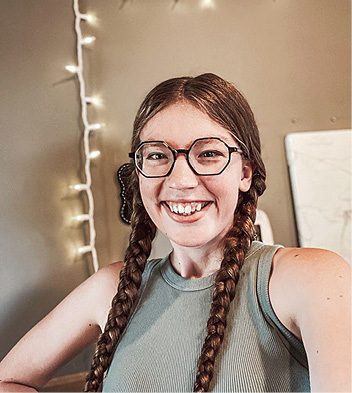
While Lindquist shared there were a lot of challenges, particularly language and cultural barriers, there were some definite advantages.
“The benefit was meeting new people with crazy life stories and backgrounds. It was awesome trying to learn new languages and foods, showing them around the North Shore, up to Canada and down to Duluth, and learning about their lives in their countries.”
Farther down the shore, between Two Harbors and Duluth, James Hall, a charter captain on Lake Superior, shared his decision to live in an apartment above a garage stemmed from his passion for fishing, hunting, and outdoor recreation. Hall says his current living situation works great “because there’s a lot of garage space downstairs. And I have a lot of toys.”
Hall owns five acres of land, encompassing a garage with an apartment above. He said the living situation is “what I have envisioned as kind of my dream home.” The small footprint in the apartment allows Hall to keep things minimal and simple, “it’s a smaller space, but it’s exactly the size that I require for my needs.”
With easy access to nearby inland lakes, hunting grounds, and the big lake, Hall’s property northeast of Duluth is the perfect balance of an active yet simplified lifestyle.
Although the motivation and reasoning for residing in a non-typical housing situation will vary per individual, the lack of housing inventory experienced nationwide and certainly in small communities along the North Shore has fostered a trend of young individuals living in unique situations. Thankfully, as many of us know, the North Shore community is full of creative, generous and supportive individuals looking to lend a hand or a converted basement.


